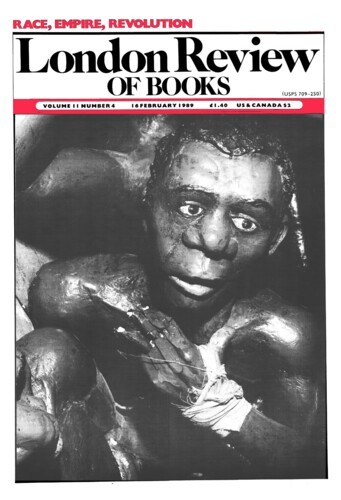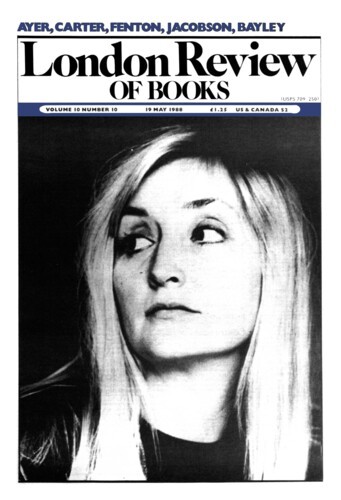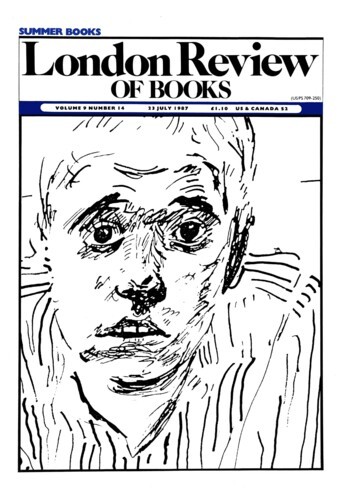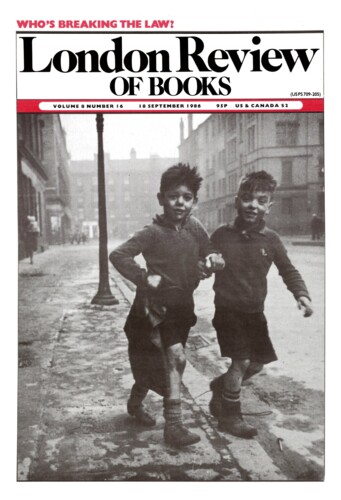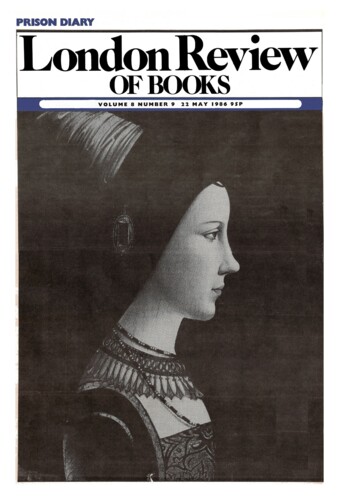I could have fancied her
Angela Carter, 16 February 1989
Back in the Sixties, a decade which evidently I enjoyed rather more than did your contributor, Janet Watts (LRB, 8 December 1988), Kenneth Clark published a contribution to art history called The Nude. A disgruntled friend of mine opined that if the author had any integrity, he’d have started off his opus: ‘Wankers, ahoy!’ (Oh, the jaunty irreverence of those days of intellectual ferment, and its reassertion of the best characteristics of British humour – funny, vulgar, true.)
